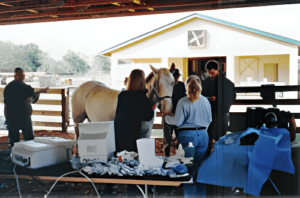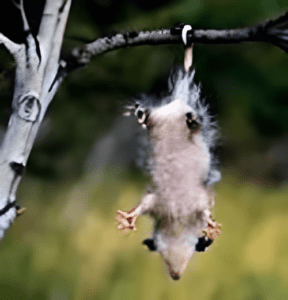Equine Cervical Laboratory Testing
Laboratory Testing
Further testing can include laboratory testing and a nuclear scan. Laboratory testing is an important diagnostic tool. The results might help diagnose as well as rule out what your horse does not have. The three main tests are for the CSF fluid, EPM, and vitamin E. The procedures and results are described below.
CSF Fluid (Cerebrospinal fluid)
A sample of Cerebrospinal fluid is taken during the myelogram for analysis at a laboratory. The fluid is analyzed for an increase in white blood cells that might indicate infection, for unusual cells that might be seen with a neoplastic (cancer) condition. The fluid can also be tested for viral infection, such as herpes virus and/or protozoa (sarcocystis). The CSF sample should be clear and not cloudy. If a myelogram is not done, a standing lumbar tap can be used to obtain the CSF sample. Standing taps can be difficult, so if a myelogram is considered, it is best to wait and collect the sample.
EPM (Equine Protozoal Myelitis)
Equine Protozoal Myelitis can cause ataxic symptoms that are similar to wobbler syndrome. The horse can stumble or have difficulty walking and other symptoms. With similar symptoms, it is advised to rule out Equine Protozoal Myelitis as a cause with a serum sample sent in for analysis. When a myelogram is performed, a sample of the Cerebrospinal fluid is collected. This sample, along with a blood sample, should be sent in together for analysis.
Horses can have both EPM and cord compression. They need to be treated at the same time for both the EPM and cord compression, rather than treating one or the other and waiting.
Vitamin E
There are some families of horses and environmental areas that result in vitamin E deficiencies. Blood samples for vitamin E levels can be sent off to a laboratory that specializes in vitamin E analysis. The three blood samples are collected in a red top tube over an 8-hour day. The serum is separated and sent in. This will give an accurate measurement of the vitamin E levels throughout the day. If your horse's vitamin E levels are low, it can be supplemented to their feed. The dosage of vitamin E is 8000 IU per day.

